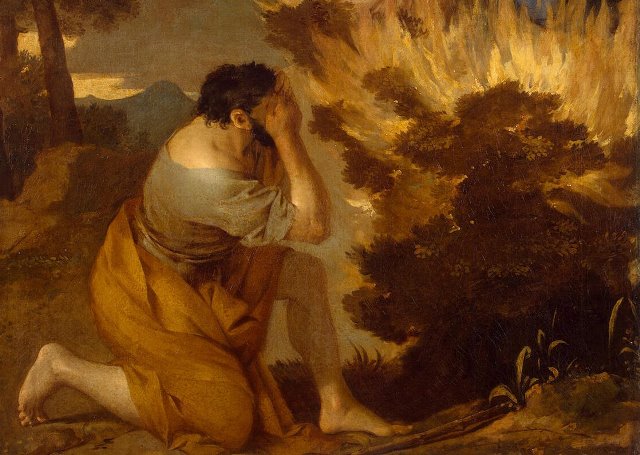
Moses was not happy that he had been given the task of leading the Jewish people out of Egypt. He foresaw many of the challenges involved, including the difficulty in gaining the trust of the Hebrew slaves.
“So I will go to the Israelites and say to them, ‘The God of your fathers sent me to you.’ They will ask what His name is — what should I tell them?”
God replied to Moses: “'I Will Be Who I Will Be.’ This is what you should tell the Israelites: ‘I Will Be’ sent me to you.” (Ex. 3:13-14)
What do these peculiar names — “I Will Be Who I Will Be” and “I Will Be” - mean? Also, it appears that God gave Moses two different answers. Which name was Moses to use in identifying God to the people?
I Will Be With You
The Talmud in Berachot 9b explains God’s response as follows:
“Go tell the Israelites, ‘I Will Be Who I Will Be.’ ‘I Will Be’ with you in this exile, and ‘I Will Be’ with you in future exiles.”
Moses exclaimed, “Master of the Universe, we have enough problems already! Why mention future suffering?”
God agreed. “Go tell them ‘I Will Be’ sent me to you.”
This explanation, however, creates new difficulties. Did God need Moses to explain human psychology to Him? Did Moses understand the people better than their Creator?
A Guide for All Times
God’s message to the Jewish people was that the Torah and its mitzvot would enable them to attain their highest state of being. The Torah would guide them throughout history, in all situations, whether they were a subjugated people in exile or a free people in their own land.
God wanted the people to know that the redemption from slavery in Egypt was not a one-time rescue mission. They were leaving Egypt in order to receive the Torah at Sinai. The Divine name “I Will Be Who I Will Be” was meant to convey a fundamental message: the Torah is a guide for all times, a path that would sustain the people even during future exiles and troubled times.
God never intended, however, that Moses would use this name. Moses was not supposed to explicitly mention future exiles and further dishearten a downtrodden people. Rather, Moses was to tell them the shorter name, “I Will Be.” The subjugated nation would be informed that God is with them now — “I Will Be” with you in this exile, and I will redeem you. And they would understand that the Torah will also guide their lives when they will live as an independent nation in their own land.
Implicitly, however, the name “I Will Be” contains a deeper message. As a free people in the Land of Israel, the Torah would prepare them to be an eternal nation, overcoming the challenges of future exiles. “'I Will Be’ with them in this exile; and ‘I Will Be’ with them in future exiles.”
(Sapphire from the Land of Israel. Adapted from Ein Eyah vol. I, pp. 45-46)
Illustration image: Burning bush (Sébastien Bourdon, 1616-1671)





